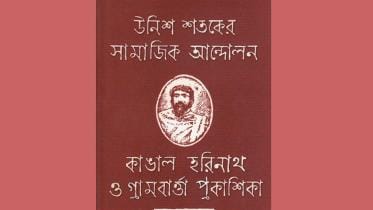Kangal Harinath
The legacy of Kangal Harinath
A teacher of a small village was so overwhelmed by the atrocities of the landowners or zamindars of colonial India that he decided to write something in protest. A former employee of a British-owned indigo production factory, he was a first-hand witness of the cruelties against the workers who gave their sweat and blood to only be further exploited by the zamindars and the British Raj.
16 April 2017, 09:38 AM
150 years old press that still works
More than 150 years ago, Kangal Harinath Majumder, an employee of a British-owned indigo production factory, witnessed how cruelly the workers were being exploited by the zamindars and the British Raj, and he decided to do something about it. Harinath left the job as a tutor at his small village in Kushtia and decided to wage a war against such atrocities in his own way— by publishing news in his own newspaper.
24 April 2016, 06:46 AM
Death anniversary of KANGAL HARINATH
Exponents and speakers urged to take befitting steps to disseminate the ideology of Kangal Harinath, the Bengali pioneer of rural
20 April 2015, 18:00 PM


